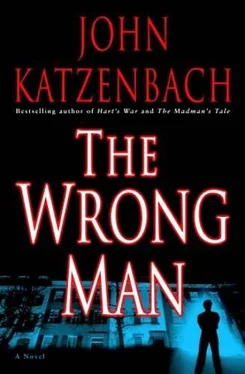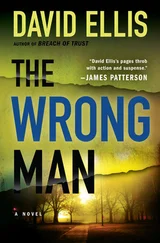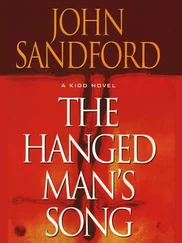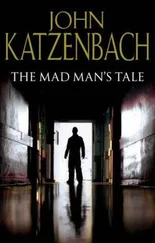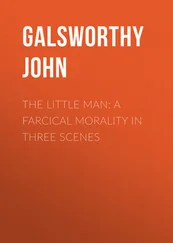She took a deep breath and wondered how people could end up so lonely.
Mrs. Abramowicz entered with two cups of steaming tea. She smiled down at the collection of cats, who immediately began rubbing her and trailing after her. “Not quite dinnertime yet, loveys. In a minute. Let Mother have a little talk, first.” She turned to Hope. “You don’t see your Socks in my little menagerie, do you?”
“No,” Hope said, adopting a sad tone. “And I didn’t see him in the hallway, either.”
“I’m trying to keep my darlings out of the hallway. I can’t, all the time, because they like to come and go, that’s the way cats are, you know, dear. Because I believe he is doing something very bad to them.”
“What makes you think-”
“He doesn’t realize it, but I recognize each and every one. And every few days, one will be missing. I want to call the police, but he’s right. They will probably take the rest of my little friends away from me, and I couldn’t stand that. He’s a bad man, and I wish he would move out. I should never-”
Mrs. Abramowicz stopped, and Hope leaned forward. The old woman sighed and looked around her apartment.
“I’m afraid, dear, if your little Socks came to visit, then that bad man might have taken him. Or hurt him. I cannot tell.”
Hope nodded. “He sounds terrible.”
“He is. He scares me and I usually won’t talk to him, except when we have words, like today. I think he scares some of the others who live here, as well, but they won’t say anything either. And what can we do? He pays his rent on time, doesn’t make any noise, doesn’t have wild parties, and that’s all the ownership cares about.”
Hope sipped at the sweet tea. “I wish I could be certain. About Socks, that is.”
Mrs. Abramowicz sat back. “There’s one way,” she said slowly. “You could be certain. And it might help answer some of my questions, too. I’m old and I’m not very strong anymore. And I’m scared, but I’ve got no place else to go. But you, dear, you seem much stronger than me. Stronger even than I was, when I was your age. And I will wager that you’re not scared of much.”
“Yes.”
The old woman smiled again, almost coyly. “When my husband was alive, our apartment was larger. In fact, it included all the space that Mr. O’Connell now occupies. We had two bedrooms and a sitting room, a study and a formal dining room, and this entire end of the building. But after my Alfred died, they cut it up. Made our one big apartment into three. But they were lazy when they did it.”
“Lazy?”
Mrs. Abramowicz took another sip. Hope saw her eyes flash with an unexpected anger. “Yes. Lazy. Wouldn’t you think it lazy to not bother to change the locks on some of the doors to the new apartments? The apartments that were once my apartment.”
Hope nodded. She felt a sudden, electric tension within her.
“I do so want to know what he’s done to my cats,” Mrs. Abramowicz said slowly. Her eyes narrowed, her voice deepened, and Hope realized that there was something formidable about the woman. “And I imagine you’d like to know about Socks, too. There’s only one way to be sure, and that’s to look inside.” She leaned forward, putting her face only a foot or two away from Hope, and whispered, “He doesn’t know it, but I have a key to his front door.”
“So,” she said as a shadow slipped across her face, “do you now see what was in play?”
Any reporter knows there is a necessary seduction between subject and writer. Or maybe it’s instinctively knowing how to cajole the most difficult of stories out of a source. Still, I knew she was steering the conversations, had been since the beginning. Our meetings were trysts for information, but by telling the story, I would be using her as much as she had used me.
She paused, then said, “How often do you hear amongst your middle-aged friends the desire to change things? To be something other than who they are? They want something to happen that turns their life upside down, so they no longer have to face the dreary, deadly routines of life.”
“Often enough,” I replied.
“Most people lie when they say they want a change, because change is far too terrifying. What they really want is to regain their youth. When you are young, all the choices are adventures. It’s when we reach middle age that we begin to second-guess our decisions. We stepped upon a path, and we have to walk it, no? And it all becomes problematic. We don’t win the lottery. Instead, the boss calls us in and tells us we’re being downsized. The husband or the wife of twenty years announces, ‘I’ve met someone new and I want out.’ The doctor looks up from the sheet of test results with a frown and says, ‘These numbers aren’t good. I’m going to order some additional exams.’ ”
“Scott and Sally…”
“For them, Michael O’Connell had created that moment. Or, perhaps, that moment was fast approaching. Could they protect Ashley?”
She suddenly put her hand to her lips, and I heard a gasp escape from her throat. She took a second to regain her composure. “Because, although no one had quite articulated it, not yet, they all knew somewhere deep within, that what they hoped to purchase would come at a high price.”
A Single Boot
Hope stood uncomfortably outside the door to Michael O’Connell’s apartment with the key in her hand. Behind her, Mrs. Abramowicz lurked in her own doorway, cats circling at her feet. She gestured eagerly for Hope to go ahead.
“I’ll keep watch. It will be all right. Just hurry,” Mrs. Abramowicz whispered.
Hope took a deep breath and slipped the key into the lock. She wasn’t sure about what she was doing or what she was looking for, nor did she know precisely what she hoped to learn. But she had the key in her hand, and as it turned the lock with only the quietest of clicks, she imagined O’Connell walking down the sidewalk, turning the corner to his street, closing in on her as the night fell. She could sense his breath behind her ear, imagined the hiss of his voice. She gritted her teeth and told herself that she would fight hard, if it came to that.
“Quick, dear,” Mrs. Abramowicz said, still urging her forward. “Find out what he’s doing to my cats.”
Hope pushed the door open and stepped inside.
She did not know whether to shut the door behind her or leave it ajar, so that-what? she thought. If he comes back, I’m trapped here. No back door. No fire escape. No way to flee. She took a deep breath and closed the door almost all the way. At least, she thought, she would be able to hear a warning from Mrs. Abramowicz, if the old lady was capable of issuing one.
Hope surveyed the apartment. It was dingy and neglected. Clearly, O’Connell didn’t care about his immediate surroundings. No colorful posters on the walls, no plants in the window, no multihued throw rug on the floor. No television or stereo. Only a few tattered computer-course textbooks stuffed into a far corner. The apartment was decrepit and austere; a monk’s hideout. This unsettled Hope, the recognition that all the passion in Michael O’Connell’s life rested in his imagination. He lived in a different world from the one where he put his head down and slept.
She moved swiftly into the apartment, took a deep breath, and in that instant invented a plan.
Memorize, she told herself. Remember everything.
She reached inside her jacket pocket and found a scrap of paper. On a small desk she spotted a cheap pen. She immediately sketched a rough floor plan, then turned back to the desk.
It was a cheap wooden tabletop stretched across two black metal filing cabinets. A single wooden, stiff-backed chair was drawn up in front of a laptop computer. The setup had a naked simplicity; she could imagine Michael O’Connell seated across from the screen, its metallic light bathing his face, as he concentrated on the images in front of him. The laptop appeared new. It was open, plugged in, and the power light was lit.
Читать дальше
